A version of this post originally appeared on the Health Affairs Blog.
We know that when patients are provided with access to their medical records, they feel more in control of their care, better understand their health conditions and their care plans, prepare for their visits, and adhere more to their medications. Despite patient portals’ usability challenges for certain groups of patients and disadvantaged populations, they not only help patients and their care partners, but also significantly reduce overhead costs for providers. When physicians can instantly access their patients’ medical data electronically, both quality and efficiency of care radically improves. Overall, an interoperable system across the U.S. which provides instant access to medical records is estimated to reduce the costs of health care services by $371 billion per year.
Interoperability efforts have failed
Given the benefits of interoperability and free flow of data, the U.S. government has already spent over $35 billion under the meaningful use program to subsidize the adoption cost of electronic health records (EHR) systems. A part of this budget was allocated to the establishment of health information exchange platforms which were to connect these different EHR systems and allow the transmission of data between them. Yet, almost a decade after that massive investment, health information is rarely exchanged between providers, despite the fact that almost all of them now use an EHR system.
Vendors and providers are only part of the problem
EHR vendors and medical providers are often blamed for this failure, and stricter enforcement of regulations is recommended to remedy the problem. On the contrary, I argue that the reasons for the lack of interoperability are not a few uncooperative EHR vendors and medical providers. Rather, I believe this failure is a consequence of the very same regulations that were intended to foster information exchange.
To be sure, there are some vendors that have intentionally blocked data transmission in violation of their agreement. But most of them are in perfect compliance with the guidelines. Recently, eClinicalWorks (eCW), a developer of EHR systems, had to settle with the Department of Justice and the Office of the Inspector General for $155 million over allegations which claimed that “eCW’s software failed to satisfy data portability requirements intended to permit healthcare providers to transfer patient data from eCW’s software to the software of other vendors.”
Although this is a significant development, note that eCW is not a major vendor and its practices cannot be generalized to others. It only holds less than 10 percent of the share in the much smaller market of ambulatory care. Congress is also demanding that the Centers for Medicare & Medicaid Services attempt to recover $729 million dollars of meaningful use funds that providers received by fraudulently attesting to the requirements that they did not meet. Again, the $729 million dollars of misappropriated funds amount to only 2 percent of the total meaningful use incentives. If more than 90 percent of the EHR market is compliant with meaningful use certification guidelines and 98 percent of the meaningful use funds are correctly allocated to providers who follow the meaningful use requirements, it is unreasonable to blame only uncooperative EHR vendors and dishonest providers for the system’s broad failure to effectively exchange information. More importantly, we must ask: How could stricter enforcement of regulations solve the problem when the overwhelming majority are already following those regulations?
Interoperability is limited by a massive regulatory wall
Congress has declared free transmission of EHR data to be an individual right in the HITECH Act and has strictly prohibited EHR vendors from monetizing data in HIPAA rules. Declaring something a right creates expectations, but it does little to help overcome specific obstacles. Congress’s decision to declare free transmission of medical data as a patients’ right does nothing to make it happen. More importantly, its decision to ban charging data transmission fees has eradicated any incentive for entrepreneurs to invest on providing this service. Theoretically, EHR vendors can fold the data transmission costs into other fees that they charge providers. However, this would even further strengthen their monopoly and keep the actual exchange fees unreasonably high. Currently, only EHR vendors can charge exchange fees, though indirectly. If it was legal to directly charge a data exchange fee, other innovators would compete to provide exchange services at a lower cost and higher quality.
In every industry, information supply chains are formed and maintained in part by transmission fees. Consider the banking industry. Individuals have never had a right to free online access to their financial data, nor were banks ever prohibited from charging fees for financial transmissions. Yet, almost everyone in the U.S. now has access to a secure, easy to understand and user friendly online banking system which enables them to access their financial data in real-time and instantly send or receive funds to and from anyone across the country. The online banking system and seamless exchange of financial data became possible only because there were no rules prohibiting banks from charging fees from providing such services. Naturally, as soon as banks realized the benefits of online banking and exchange of financial data, they came together and created a system which is the envy of the health care system. The online banking system is now mature enough that almost all major banks offer their online services for free, yet fees for financial information exchanges such as wire transfers and equity purchases are still in place.
Policy recommendations
The U.S. has spent billions of dollars and tried for a decade with great futility to give patients and providers access to medical data. It is now time to realize that under the current regulatory framework, every effort to enable information exchange in health care industry is destined to fail. Congress should learn a lesson from the success of banking industry and revise HIPAA and HITECH to allow providers and EHR vendors to charge fees for exchange of medical data. This would unleash the long-awaited incentives for information exchange in the health care industry and open the floodgates of medical data to allow patients to access, manage and transmit their medical data as easy as their financial data.
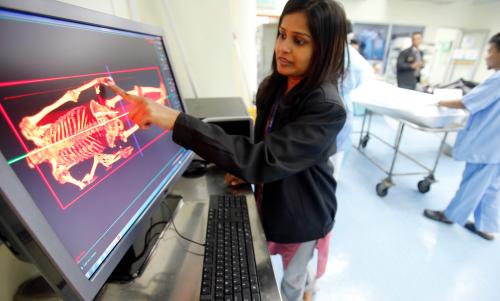
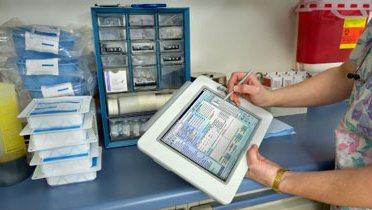
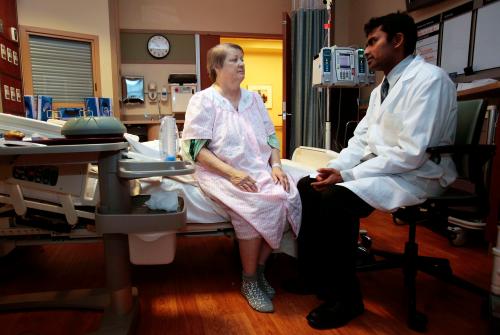


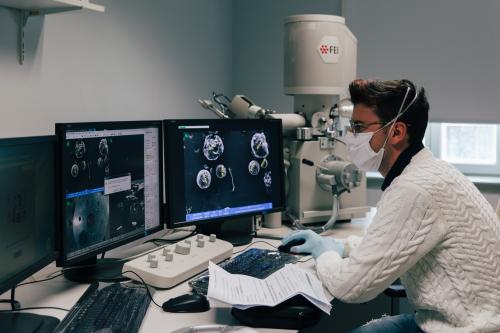
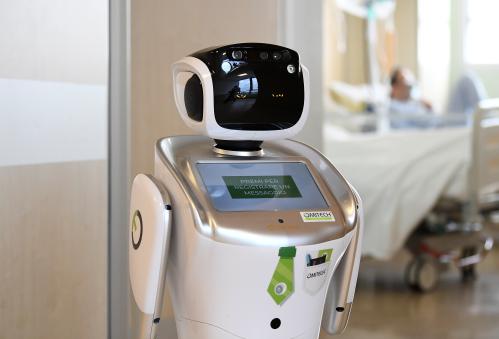
Commentary
To foster health information exchange, revise HIPAA and HITECH
September 19, 2017